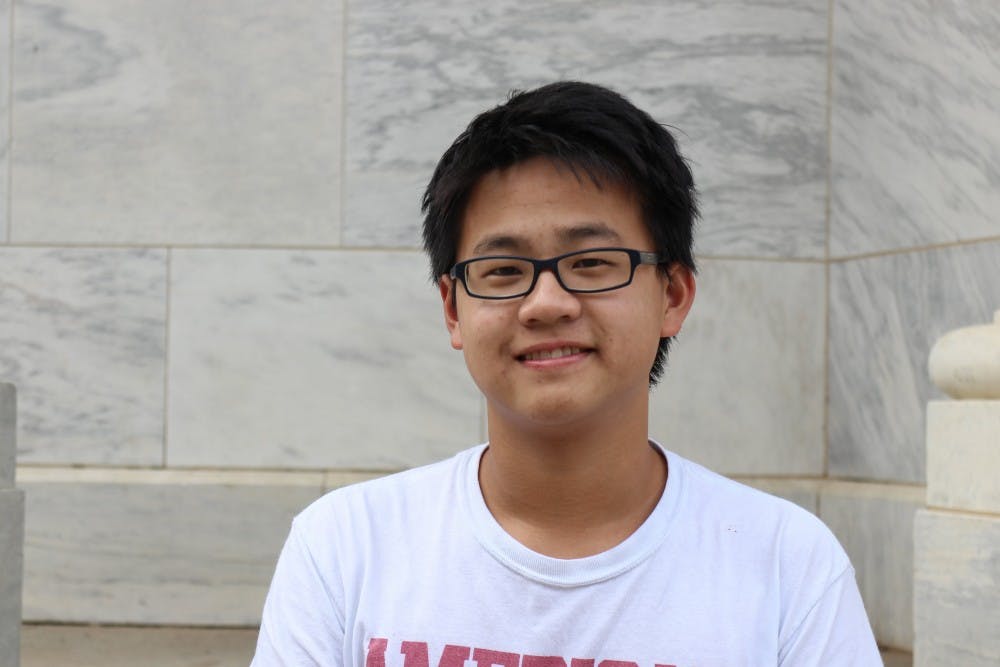Something immediately visible in this year’s Senate elections was the use of certain buzzwords that constantly permeate our campus culture, including diversity, unity and inclusivity. Almost all the campaign messages I came across featured phrases resembling either “creating change in communities” or “improving campus climate.” Slogans and campaign manifestos constantly stressed the importance of advocating for people of color, minorities and first generation students.
Very few candidates followed up with actual programs or initiatives they would implement to reach such goals. Those that did -- such as freshman Senator candidate Mulan Burgess with his ideas to improve the career center and Senator-at-Large candidate Yasaman Hakami with her intersectional policy proposals -- were elected. Now that the election is over and all the Senators have been sworn in, I wanted to look at what our newly elected delegates can actually do about cultural issues on campus, as well as what resources they can and should use to serve the student body.
The AUSG Undergraduate Senate is comprised of 30 Senators: one from each school, five from each class, and five from the general student body—also known as Senators-at-Large.
Because the policies of the Student Government don’t necessarily affect the student body directly (a significant portion of the Senate’s power pertains to the policies within the government itself, not the student body), the pivot in whether legislation will be effective or not lies in the ability of the Senate to appropriate funds and create committees to address the various issues that arise on campus. The issues mentioned earlier, center-staged by many candidates in the recent election, may ultimately fall to the five senators that make up the Special Committee on Diversity, Equity and Inclusion. Senate bylaws state that it must establish this committee by its second meeting.
Here’s where it gets tricky. Many different proposals that were exchanged during the election already exist in some form or another. AU’s anti-hate policy, security measures, health centers such as OASIS and willingness to expel students who violate policy are all examples. It’s difficult to craft policy when there’s nothing left to craft, especially when racially-motivated aggressions on campus are so underlying and difficult to identify.
The bottom line is: don’t expect anything to be done, because most of these things have already been done. There are substantial resources for individuals who have experienced discrimination, aggression or abuse on campus. Furthermore, there are policies and programs designed to help all students live the best possible experience at AU. If the Student Government is going to satisfy the copious number of empty promises, it’s going to come from advocacy, not policy.
The committees within the Senate are usually tasked with producing reports and opinions on issues concerning the student body pertinent to legislation. It seems that if anyone wants to get their voice across to the legislature, it would be through the Committee on Diversity, Equity and Inclusion. Personally, I would look to publish concerns in student press, because publicity—not student government or the University—seems to be the greatest tool available to students. That’s a problem.
To follow up on campaign promises, SG must work through a mindset opposite that of University administrators. Currently, all the different programs and features of the University itself are just sitting around, waiting for people to come forward with concerns. If SG wants things to be done and for those things to be noticeably effective, it must reach out to the student body rather than waiting for the student body to come to it.
The Senate should hold workshops, events, debates, panels and programs for students to attend. Guest speakers, professorial lecturers, vocal students and survivors should all be given the opportunity to speak about their experiences and opinions. The Senate can wait for students to provide reports to the various committees or individual Senators on what SG can do to help those who don’t feel safe or included on campus. Or they can use their influence and close proximity to their peers to reach out to students and amplify their voices like so many candidates promised to do.
There’s an important distinction between our new Senators and University administrators, which is their presence among the student body itself. Whereas the University can only process complaints and implement mechanisms to be available for student concerns, the Student Government can actively extend that courtesy through means of advocacy and publicity.
Mark Lu is a freshman in the School of Public Affairs and a columnist for The Eagle.
mlu@theeagleonline.com





